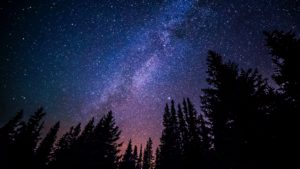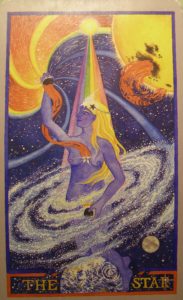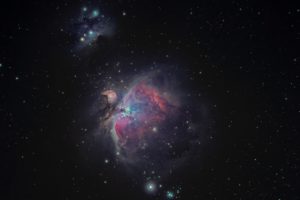by Jenny Rose | Mar 8, 2018 | Choice, Power
Selchie: A mystical creature who takes the form of a seal in the sea and a human on land.
I have a picture book from my childhood called Greyling, by Jane Yolen. It’s one of my favorite stories, by one of my favorite authors, and I’ve told it as an oral storyteller for many years. When I began doing storytelling, I sought out all the selchie stories I could find and incorporated them into my programs.
I rarely tell a selchie story without fighting back tears.
I’ve lately revisited this wonderful material for the second book in my Webbd Wheel series, and it occurred to me to explore why these stories touch me so painfully and deeply.
Selchie stories appear in the Hebrides, Iceland, Orkney, Scotland, Ireland and the Faroe and Shetland Islands. Like all lasting oral traditions, they contain blueprints for navigating loneliness, exile, love, loss, competition, compassion, trust and power. A good story has many facets.
A common thread in selchie stories is that a seal comes to land, takes off its skin, and becomes human, usually a beautiful young woman. Subsequently, the skin is stolen by a man and the woman entrapped. In many of the tales, she marries the man who has her skin (always a fisherman) and bears his children. Sometimes her husband promises after a certain number of years he’ll allow her access to her skin again, but he doesn’t follow through for fear of losing her. Inevitably, the skin is found, often by a child, and returned to the selchie, who must then face a choice between her life with her family and her life in the sea.

Photo by Jeremy Bishop on Unsplash
It is this choice that makes me weep. I know the agonized longing for what we are made of but can’t ever quite find.
As I observe the world and people around me, I think many of us feel in some way exiled from who we were born to be, from a place, from a tribal connection, from some integral expression of self. I believe this exile creates such an unbearable hunger we grasp at anything within our reach in order to appease it, becoming addicts, developing eating disorders and body dysmorphism, and struggling with anxiety and depression. We live in a culture of distraction and entertainment. We’re busy, noisy, exhausted, and inundated with information, stimulation, propaganda, manipulation and demands.

Photo by Anna Dziubinska on Unsplash
We want what we are made of, but how do we find what that is? Why is it taken away or withheld from us? Why are we so often forced to choose between one thing we’re made of and another? This all lies at the heart of selchie stories, for the selchie is a creature torn between two worlds and two tribes, and we instinctively recognize this conflict.
Choice is so often grief. If a selchie re-dons her skin and goes back to the sea, she cannot return, for she already knows the terrible cost of losing her skin, and though she may love her children and even have grown to love the fisherman she’s with, she cannot trust him. In returning to the sea, she is joyous, but now the grief of leaving her children and the life she made on the land replaces her longing for the sea.
I was with a man who avoided choice. He said he didn’t like to choose one thing in case something better came along. My experience of this was that he didn’t want to commit. It meant we couldn’t plan a date, a weekly ritual or even a walk. If we did, he frequently cancelled at the last minute. It was painful for me, and it frayed our connection considerably as I vacillated between hurt and anger. Eventually, I gave up and made my own plans. I told him that his maybe-I-will and maybe-I-won’t approach didn’t avoid a choice but was a choice. He refused to take responsibility for that, and he was bitter about the choices I made subsequent to his.
I’ve also been with partners who believe we can have it all. One man walked away from any situation in which he couldn’t have his cake and eat it too. It was a point of pride with him. He didn’t see why he shouldn’t have it all, and, as far as he was concerned, the world (and I) owed him that. Looking back, I see this as just another evasion of the heartbreak and consequences of having to make choices.
I think very few of us have the luxury of having it all. We come together and move apart, searching, fleeing and climbing ladders we hope end in success. Many of us feel rootless in terms of place and tribe. We don’t really feel we belong anywhere on a map, and we have no rightful place in a human circle. We do the best we can, a choice at a time, and over the years those choices and their consequences teach us who we are and turn us into adults.
What we’re made of is not necessarily what we’re born into. What we’re made of is not necessarily the place we live in, the people surrounding us, the job we have, the clothes we wear, the car we drive or the color we dye our hair. What we’re made of is not always who we want to be, who we insist we are or who we’re expected to be. Discovering what we’re made of is an excavation of our dreams, our souls and our joyous bodies. Many of us spend our whole lives finding one piece of ourselves at a time, stumbling, groping, picking up and discarding, searching blindly in the dark with nothing but our feelings to guide us.
On one particular day of no special consequence, my small toddling self, clothed in a yellow bathing suit with white trim, was lifted into a pool of water as big as the sea. From that day to this I’ve loved the water, and during occasional long, dry spells without access to swimming I dream of water and wake myself weeping with the anguish of my longing.
I’m a creature of water. It’s part of what I’m made of.

Photo by Nathan Anderson on Unsplash
For some years I lived in a city and laid awake at night watching headlights move across the ceiling and walls, straining to hear a precious moment of silence in between the sound of cars and sirens and too many restless people moving through the pale night. I dreamed of high, snow-covered mountains under starry skies and the peace of trees in unbroken darkness. Every day I died a little more, but I knew in my heart one day, one day I would leave the city and live in the shadow of the mountains I dreamed of. A thousand nights later I freed myself from the tentacles of that city, but I also left behind my marriage and the father of my children, my belief in happy-ever-after, the most lucrative job I ever had and the good wife and mother I wanted so much and tried so hard to be.

Photo by Ryan Hutton on Unsplash
At last, I slept in the shadow of snow-covered peaks in a small mountain town without pavement and street lamps and sirens. When I awoke at night, I heard the cry of the vixen, the rushing wind, the owls calling to one another, the sound of the bear eating apples from the tree outside my window, or the raccoons cavorting in the tops of the pear trees like furry pirates.
I did not have it all. I had another piece of what I’m made of. I chose it, and I paid for it. I’m still paying for it, twenty years and thousands of miles later, and whatever the cost, it’s worth it. I cannot live in the city.
By the time my life is over, will I know everything I’m made of? Will I have lived with enough courage to choose what I’m made of, come what may? Will living true to what I’m made of sustain me? Will I ever find my own sealskin wedged between rocks, or locked away in a chest, or hidden in the thatch?
Reclaiming what I’m made of, one choice at a time. My daily crime.
The selchie lives in a small cottage on the shingle beside the sea. She lives with a fisherman whose face is carved with a lifetime of loneliness that she has relieved. She and her children gather seaweed and driftwood, mend nets and dry fish and watch for the fisherman’s return, lighting a lamp and setting it in the window to welcome him home in the evenings. She lies with her man at night and listens to him sleep, and the waves come in, and the wind sighs through the beach grass, and she thinks of her sea kin and wonders how it is with them and if she’ll ever see them again.

Photo by Kace Rodriguez on Unsplash
The selchie takes the folded sealskin from her child and holds it to her breast, weeping, smelling its fading perfume of fish and sea, rubbing its softness against her cheek. She tells her children she loves them, but she must leave, and they clutch at her hands and her skirts, crying, not understanding what is happening. She tells them they will see her again, but in a different form. She cannot stop to explain, lest the fisherman return and her chance for freedom is lost. She stumbles out of the house, casting aside her clothing as she goes, until she stands naked in the surf and steps into the skin. The children follow, stricken and wailing, pleading with her not to leave, but her need for what she is made of is even greater than her love for them, and the surf takes her gladly in its embrace and carries her out. She looks back one more time, her great, dark eyes full of tears, before she dives into the arms of what she is made of and disappears.
All content on this site ©2018
Jennifer Rose
except where otherwise noted
by Jenny Rose | Mar 1, 2018 | A Flourishing Woman, Creativity
Alchemy: A seemingly magical process of transformation, creation, or combination (online Oxford Dictionaries).

The Star
Emotional intelligence training opened my eyes to the power of needs in our human experience. Coming to terms with my own needs catapulted me into a new life. During the months in which I learned to navigate through my feelings, needs (click here for needs inventories), limiting beliefs and stories, I kept coming back around to the same question.
If I accept that all human beings have needs, and a right to have them met, what then do I do with my unmet needs, past and present?
We might all have a right to get our needs met, but that doesn’t mean we have a guarantee they will be met, or that we can hold anyone responsible for meeting them. We can meet some of our own needs, but not every one. Some needs require healthy connections with others, but not everyone has that. Some people don’t have a single healthy connection with another human being, let alone many, and one relationship can’t meet all our needs.
Unmet needs are devastating, make no mistake. They drive addiction, all kinds of violence and power-over behavior (like school shootings), mental and physical disease and illness, and suicide. A chronically unmet need is a nonhealing, stinking ulcer on the soul. We may hide it from others and even ourselves, but it never stops oozing blood and pus. Unmet needs can cripple and/or kill us. We can let go of some people, behavior and beliefs, but needs are intrinsic.
None of us can entirely meet another’s needs. We all have limitations of some kind, and finite resources of time and energy. Being unable to meet another’s needs is not necessarily because we’re unloving or uncaring. Most of our close relationships probably do meet some of our needs some of the time, and we meet some of their needs some of the time. It’s not black or white. It’s a continuum, a balance of reciprocity.
So, I ask again, what about our needs that just don’t get met because even our healthy connections are unable to fill them?
At that point we make choices. We can choose to:
- Act out in some desperate, destructive or deadly way that hurts ourselves or others.
- Blame the people around us for failing to meet our needs.
- Blame ourselves for having needs and feeling the pain of having them unmet.
- Deny that we need anything from anyone — ever (my personal favorite).
- Figure out how to neutralize the experience of unmet needs.
By neutralize, I mean accept and surrender to how painful it is to carry around a bone-deep, persistent longing for something that’s unavailable.
Acting out has never been my style. I’m also not much interested in blaming others for what goes wrong in my life. It feels like a cop-out and it disempowers me. Blaming myself — now that I’m very good at. I’ve spent years perfecting the art of self-loathing, but it’s never been helpful. Not even one time. Besides that, it hurts. I can’t pull off denial, at least not for long. I might refuse to admit certain things to someone else, but I don’t play games like that in the privacy of my own head. I have a file in my documents labeled ‘Denial File.’ Now and then I put something in that file and leave it there while I wrestle with my unwillingness to believe. When I’m ready to stop arguing with what is, I take it out and re-file it. Usually, the Denial File is empty, but I like knowing it’s there for the really tough information.
That brings me to the last choice, which leaves me standing squarely in my power. I don’t hurt myself, I don’t hurt anyone else and I get to think outside of the box — my favorite thing! What kind of alchemy transforms, creates or combines an unmet need into something beautiful?
For several months I’ve been researching outer space for my second book. I’ve compiled lists of constellations and the mythology around them. I have definitions of meteors, comets and nebulae. I’ve spent hours looking at images from space. Astounding, mysterious, vast and lovely, the universe is infinitely larger than the largest playing field I can imagine. I gulp down science fiction books and I’ve watched hours and days and weeks of Star Trek, Stargate, Battlestar Galactica, Firefly and yes, yes, Star Wars!
I also, fairly frequently, turn up The Star card when I work with my Tarot deck. The Star symbolizes creative powers, confidence and diversity.
So, what if I create a cosmos? Great word, cosmos. It means “the universe seen as a well-ordered whole” (online Oxford Dictionaries). I’m always in favor of well-ordered, especially when I get to define it. All the pieces of my experience, including unmet needs, are part of a whole. I prefer combination and integration to amputation.

Photo by NASA on Unsplash
Here I am, with my unmet needs, my history, the people who have been significant in my life and a lot of passionate feelings to express and process. I’m an alchemist, a creator, and before me is a vast black nothingness.
I want stars in my cosmos, so every tear I’ve ever cried becomes a star. I fling them far and wide, like handfuls of tiny crystals. My cosmos is so vast there’s always room for more.
I want planets in my cosmos. I hang them carefully, one by one. These are the people in my life, past and present, living and dead. Some are hot planets, sere and lifeless. Others are cool and green and blue. Every cosmos needs a bloviating, bullying gas giant with heavy gravity that sucks more than its fair share of, well, everything! Rings are decorative, and spots and alien seas and strangely-shaped continents. Also, sand dunes and storms, poisonous (to us) gases, radiation, erupting volcanoes, mountain ranges and glaciers.

Photo by NASA on Unsplash
How about moons? Cool and sterile or lush and verdant; I definitely want moons. I want constellations, too, and stories to go with them. Blazing meteors and trailing comets add movement. Nebulae add color and mystery. Galaxies swirl and spiral or spill like ribbons of milk against the darkness. Black holes suck. Suns supernova.
One by one, I use my unmet needs to decorate my cosmos. I turn them into color, texture, pattern, alien world, moon, star, sun, comet, meteor and nebula. I name them, animate them with feeling, polish them like jewels and set them in place. Maybe they stay in the farthest reaches of my cosmos, where I rarely visit them, or maybe I keep them closer. Perhaps my unmet needs appear from time to time in a meteor shower or a comet with a long tail, and I marvel at their beauty and mystery and remember again their taste and feel before they burn away to ash or disappear behind a planet.

Photo by Bryan Goff on Unsplash
My cosmos is my laboratory and my kitchen, illuminated by starlight. I stir and simmer over the heat of suns; chop and mix under waxing and waning moons; grind alien insects, rocks and roots for pigment and infuse gas and cosmic dust with color. I orbit, I dance from galaxy to galaxy in bare feet, combine a pinch of this with a handful of that until I float, weightless and free, in a cosmos of my own design and decoration.
Whenever the world is too much with me and I find myself staggering under burdens of unmet needs and other things I cannot release, I unlock a hidden door with the key I carry between my breasts and find star candles lit, suns asimmer, planets revolving and black holes lurking. Mortar and pestle, cauldron and crucible wait for my magical offerings as I combine, create and transform the material of my life into a complex and resplendent whole.
Alchemy. My daily crime.

Photo by Bryan Goff on Unsplash
All content on this site ©2018
Jennifer Rose
except where otherwise noted
by Jenny Rose | Oct 19, 2017 | A Flourishing Woman, Mind
Make yourself useful!
Can’t you find something productive to do?
Do those words sound familiar? Yeah. Me, too.
I was raised with a strong work ethic and a strong volunteer ethic. Both have been solid foundations in my life, except for one thing:
Our cultural definition of work.
Work: That activity that imprisons so many of us into a schedule, into a car, into rush hour. That large piece of our life in which we must perform certain tasks in certain ways according to certain policies and procedures and do nothing else. That arena in which we compete and prostitute our power to an (all too often) toxic authority.

Photo by Nabeel Syed on Unsplash
Work as defined by someone else and enforced through our fear of losing a paycheck. Usefulness as defined by someone else. Productivity as defined by someone else.
Then there’s workaholism. I’ve been closely connected to more than one workaholic. I used to think workaholism was a meaningless riff on alcoholism, but one day I explored it more closely because it was destroying a relationship. I bought a book (I know you’re shocked), Chained to the Desk, by Bryan E. Robinson, Ph.D., and I read it and wept. I recognized a pattern I’d lived with my whole life: A pattern of unavailability.
Workaholism describes a dynamic in which we become entirely consumed by one idea or activity. Most commonly, it’s a job, but it can also manifest with volunteer work, hobbies and interests, recreational activities or ideologies like religion. Oh, and let’s not forget addiction. During active addiction as well as recovery, some lives remain centered on whatever the addiction is or was. There’s no room for anything else.
The workaholic has a primary relationship, just like an addict, and that primary relationship is all-consuming of his/her time and energy, although most of them will never, ever admit it. Workaholics are compulsively driven, self-destructive, unable to make choices, usually in denial, and they destroy relationships. They view themselves as frantically and endlessly trying to keep all the balls in the air: Family, partner, household, friends and work. Those of us connected to them experience chronic unavailability and abandonment from them and helplessly watch as they become steadily more overwhelmed, exhausted, disconnected, ill and miserable. Trying to talk about it only makes it worse.
Workaholism often begins because we are captivated by an activity we love. We have a sense of mastery and competence, or a sense of contribution. The activity seems to give us a connection to our own power. Sometimes we earn money, or recognition, or develop social bonds, or experience some other payoff that we can’t get enough of and can’t do without. Whatever it is we’re engaged with is familiar. It’s not uncomfortable, uncertain or uncontrollable. We understand what we’re doing. We can succeed at it. It doesn’t frighten or threaten us. When we’re engaged with it we’re not doing anything else. It’s the perfect distraction. We can’t be expected to do anything else. We’re not supposed to be doing anything else. We have no time for anything else. We’re working!
Meanwhile, the rest of the workaholic’s life, all the complicated, messy stuff, becomes a smoking crater. The larger the crater grows, the harder the workaholic works in order to avoid managing or facing it.
It’s a dreadful, destructive cycle.
Some people on the other end of the spectrum from the old 9-to-5, 40-hour-a-week paradigm are talking about unjobbing. Unjobbing challenges the traditional Calvinist work ethic so many of us were raised with. It explores the territory between a 40-hour-a-week job and chronic unemployment supported by foodstamps and other social subsidies. I’ve read a lot about it over the last two or three years.
Unjobbing does not imply that one doesn’t work, just that we define it more precisely, or maybe less precisely. Maybe we should stick with the classic meaning of work as an activity involving effort done in order to achieve a purpose or result, and let any reference to jobs go.
This morning, as usual, I took a walk. I took a bucket with me, because the trees are dropping their cones and I make handcrafted wreaths and other art with them. (When I lived in Colorado, I bought all these cones. Now I take a bucket on my walk and pick them up! I love it.)

Photo by Michał Grosicki on Unsplash
Eastern White Pine
Anyway, as I walked I thought about all this: Work, unjobbing, workaholism, income sources. I groped around in the terminology, in my guilt and shame about not wanting to work in the way I’ve done all my life, and poked at my deeply-rooted belief that everyone must work! I thought about how expensive it can be to work, in education, in time, in energy, in clothing and equipment, in gas and transportation, in child care, in taxes and “benefits,” in self-respect and power and joy. I thought about work as a limitation, perhaps one of the biggest limiting factors in our lives.
It occurred to me that what I really want is a seamless life. I don’t want my life to look like: Work For Pay. Relationship. Creativity. Housework. Errands. Relaxation. Exercise. Volunteerism. Play. I can do more than live in a series of small boxes, much, much more. I can be more.
I want my life to be like my morning walk. I don’t set an alarm or adhere to any other kind of schedule in order to do it. It’s not a chore; I do it because I want to. It starts my day with exercise. It’s meditative, grounding and centering. It refuels my creativity. It reconnects me to my spiritual source. It provides free resource with which I can earn money and do something I love to do.
All this in a 45-minute walk. Useful. Productive. Joyful. Simple. Free. Seamless.
A seamless life. I don’t know if I can create such a life. I only just this morning identified what I really want. I’m not going to discuss with the voices in my head whether my desire is appropriate, allowed, shameful or possible. Such a discussion isn’t useful. I’ve worked all my life, for a paycheck, as a volunteer, in a household and as a parent. If I have to go back to a traditional job, I will.
But I’m going to try damned hard to find a better way.

Photo by Jon Flobrant on Unsplash
All content on this site ©2017
Jennifer Rose
except where otherwise noted
by Jenny Rose | Sep 14, 2017 | Connection & Community, Emotional Intelligence, Shadows
Power lies beneath the layers at the center, the heart, the core. All avenues of thought, all paths of inquiry lead back to power. What is it? Who controls it? How do we manage and maintain it? Power is the fuel of life. Every relationship is rooted in power. Managing our power is the key to managing our lives at every level, physical, emotional, creative, sexual, spiritual and intellectual.
Narcissists stalk emotional power. They seek it, they lust for it, their voracious hunger and need drive them to control it. They are a yawning abyss that can never be filled because they lack the ability to generate their own emotional power. They will never cease hunting for prey.

Photo by Rain Wu on Unsplash
The prey of the narcissist is carefully addicted and programmed with romance, charisma, and sex into becoming emotional power machines, set and calibrated to take full advantage of finely-gauged specifications of the prey’s need and vulnerability, so as to provide an unending stream of high-quality emotional power on which the narcissist gorges at will: The fine wine of our love, the exotic spices of our passion, the honey of our confusion, the refreshing tang of our jealousy, the nectar of our anguish and the bitter dark chocolate of our despair. Eagerly, we spread our longings, hopes, fears and fantasies before the icy coruscating mirror concealing the narcissist’s true nature. Narcissists manufacture networks of emotional power machines and pit us against one another in order to obtain ever more abundant, complex and complicated fuel. We are not released until we malfunction, and then we’re contemptuously eliminated (but not freed) to make room for a shiny new machine, and we languish until called for again.

Photo by Gary Bendig on Unsplash
The only hope of escape and healing lies in power, the center, the heart, the core beneath the layers. We must cease to hoard, deny, silence, or give away our emotional power. We must claim it, excavate it, call it by name, learn the flavor and scent of it. We must weep with it, rage with it, release it in righteous orgasm, create with it, fight with it. We must look through its unclouded eyes and follow it, wherever it takes us. We must pray with it, surrender to it and adore it. We must soar within its rapturous fiery wings and plunge into its healing green water. We must build a cosmos out of our emotional power and fill it with galaxies, adorn it with jeweled planets and sow it with shooting stars.
We must defend our emotional power with our lives, for without it we cannot live. We must seduce and enchant ourselves with the rapture of our own emotional power so we cannot be captivated by the scintillating mirrored eyes of the narcissist, for if we’re captured by those mirrors we’ll find nothing but our enslavement and performance as emotional power machines reflected back to us, and the stench of the charnel house will invade our souls.

Photo by Aimee Vogelsang on Unsplash
We must look in those glittering mirror eyes, look deeply, look well, and say, “Ah, here is my own reflection, my ravishing emotional self, entirely naked and unashamed.” We must say, “No, I will not be your emotional power machine, no, you can give me nothing that wasn’t already mine, no, I name you Narcissist and I know your terrible secret: You are powerless without your prey,” and turn away, dance away with our bountiful bared breasts and strong hips, pressing our lips to our own shoulders with love because we have everything we need, everything we want, as we embrace our own emotional power beneath the layers in our center, in our heart, in our core.
For more information on recognizing, understanding and managing narcissists and their behaviors, explore narcsite dot com, created and written by a narcissist. If you suspect you have had or now have a narcissist in your life, read ‘The Prime Aims’ on that site for clarification. If you are now or have been entangled with a narcissist, seek help and support immediately if you have not already done so. Your life is at risk.
All content on this site ©2017
Jennifer Rose
except where otherwise noted
by Jenny Rose | Jun 15, 2017 | Authenticity, Emotional Intelligence, Needs
I was absent last week in order to take a trip back to Colorado and finish selling my house. On the road, I thought about my last post and the second part of coming to terms with needs. Discovering, admitting and identifying one’s needs is, alas, just the beginning of what I suspect is a lifelong journey.

Photo by Will Shirley on Unsplash
So, to recap my last post, we all have needs, and we’re all driven by our needs, whether or not we’re aware of them. If we’re not aware of our needs or those of others, great big elephants are standing in the middle of our living rooms, invisible to us until we run into them, or they step on us. Our relationships and lives don’t work well and we have no clue why.
One of the trickiest parts of thinking about needs is taking responsibility for them. If we look at the needs inventory, consent to recognize and admit our needs and make a list of them, it seems logical to begin to evaluate how well our needs are being met by others.
Here’s the thing, though. All the people around us have needs too, some identical to ours and some different. That doesn’t mean we’re responsible to meet all those needs, and they’re also not responsible for meeting our needs.
Newsflash! Having a right to get our needs met and understanding our needs are as important but not more important than everyone else’s doesn’t guarantee our needs will actually be met by … anyone.
This seems unfair to me. Excavating my own needs and acknowledging them, even to myself, was a lot of work. I was annoyed when I realized nobody much cared what my needs are. They’re too concerned with their own! What’s the point of this aspect of emotional intelligence, then?
First of all, it’s about adulting. Grownups know who they are, including understanding what they need. Those of us who aspire to adulthood are required to possess this kind of self-knowledge and accept responsibility for communicating our needs to others, not because anyone has an obligation to meet them, but because we’re willing to know ourselves and allow others to know us, too.
Needs are inextricably enmeshed with boundaries. I have a long history of ineffective boundaries, frequently resulting in me choosing the needs of whoever I was with over my own. Paired with another person with bad boundaries, this quickly becomes an unhealthy, unhappy relationship. One of the words we use to describe such a connection is codependent.
The second point about working with needs is understanding our satisfaction and enjoyment of connection with others is directly related to the degree to which our relationships help us meet our needs. This is complicated by the fact that feeling love for someone doesn’t imply our needs are well met in relationship with that person. For example, media-driven portrayals of romantic love don’t address needs at all outside the realm of sex, and sex is not enough to create sustainable, healthy long-term relationships.
Thirdly, we humans have a great propensity to self-destruct when our needs are not well met. We use strategies like substance addiction, sexual acting out, eating disorders and cutting to manage the painful dysfunction of not getting our needs met. Sadly, the culture focuses on fixing the behavior rather than the cause — the unmet need.
Fourthly, making friends with our needs connects us to our power. When we understand what’s not working in our lives and why, we’re empowered to make better choices on our own behalf and create the kind of life we want. We build boundaries. We learn to be more authentic. We learn to be responsible, which is another way of saying we learn to manage our own power.
Another aspect of needs is that they change. Our needs change as we age, as we grow, as we move through our lives. Not only do needs change, we can be wrong about what we think we need and discover, accidentally, needs we never recognized we had.
I said this was tricky, remember?
Having our needs met is not a black-and-white experience. No one person can meet all their own needs or all the needs of another, no matter how beloved. Expecting any single person to meet all our needs puts an unbearable burden on that person and the relationship. Human beings need healthy community because community helps us all meet most of our needs most of the time.
So how many of our needs must be met for a relationship or a life to be healthy and effective? I don’t think there’s a formula for this. I suspect every case is different, because we’re all unique individuals. We have several core needs in common, but we don’t all need the same things to the same degree.

Photo by Anna Dziubinska on Unsplash
For example, think about noise. I’m very sensitive to noise. Prolonged and unrelieved exposure to traffic, loud music, television, crowds, airplane and car noise or even a beeping alarm unhinges me. First I’m frantic, then I’m exhausted and then I’m ill. I have a primary need to control the noise in my environment. I hate crowds, parties, loud restaurants and cities.
Other people don’t seem to even notice noise levels. Many millions live in cities with a constant background of noise quite happily. I was struck by how many people live along the interstate system as we drove from Maine to Colorado and back again. I couldn’t live beside a freeway for a day without losing my mind. Life would literally not be worth living for me.
If my need for a low-noise environment doesn’t get met, nothing else will work for me. I can’t function in a noisy environment, period.
On the other hand, I’ve always believed order in my environment was also an essential need. I’ve lived in such a way that I’ve controlled housekeeping, cleaning, etc., except for private bedrooms and workspaces romantic partners and children have had. Before I came to Maine, I was sincerely certain I couldn’t live happily in disorder, dust and clutter.
Much to my surprise, chagrin and irritation, I’ve discovered I can, at least temporarily. The old farmhouse my partner and I are living in is falling down and loaded with (to my eyes) junk and clutter, most of it undusted for years. I often feel frustrated and resentful about this. However, our relationship is meeting my needs in ways they’ve never been met before, and getting so many needs met balances out the squalor (my interpretation) in the house.
Managing my needs has become a kind of dance. After much practice, I now maintain a friendly relationship (mostly) with my needs as they ebb and flow. I’ve learned to tell others when my needs are not met without apology or justification, as well as communicate what I need simply and directly. I’ve got some beautiful boundaries in place. I’ve learned to ask others what they need, not because their needs are my responsibility, but because I want to support them in getting their needs met. I’ve let go of expectations that anyone is obligated to meet my needs, but I treasure and nurture those relationships in which my needs are met naturally.
I also have precious people in my life whom I dearly love who don’t meet many of my needs, and that’s okay. Those connections are based on other things. I probably don’t meet many of their needs, either, but it’s not for lack of love and it doesn’t mean anyone is bad or wrong.
Managing needs takes a lot of mess and clutter out of my life. If something’s not working, I notice it right away and a little contemplation leads me quickly to the bottom line — what need is not getting met? Where and how am I feeling disempowered? What can I do to help myself and who do I need to have an honest discussion with?

Photo by Bewakoof.com Official on Unsplash
Taking action when there’s a problem, communicating carefully and authentically and taking responsibility for my own needs invites those around me to do the same. Some people will accept the invitation and some won’t. We can’t control what anyone else does or doesn’t do. However, we can choose which connections to put energy into and which to bless and release, and we can commit to managing our needs effectively and appropriately for our own sake as well as the sake of others.
All content on this site ©2017
Jennifer Rose
except where otherwise noted

















